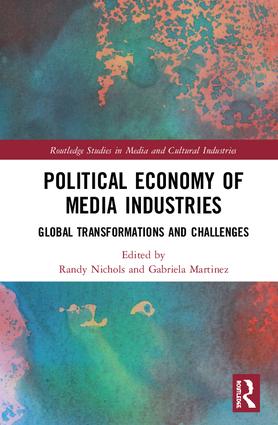
Political Economy of Media Industries: Global Transformations and Challenges, edited by Randy Nichols, Gabriela Martinez ( Routledge, 290 pages, November 2019) Series: Routledge Studies in Media and Cultural Industries)
“This book provides a critical political economic examination of the impact of increasingly concentrated global media industries. It addresses different media and communication industries from around the globe, including film, television, music, journalism, telecommunication, and information industries. The authors use case studies to examine how changing methods of production and distribution are impacting a variety of issues including globalization, environmental devastation, and the shifting role of the State. This collection finds communication at a historical moment in which capitalist control of media and communication is the default status and, so, because of the increasing levels of concentration globally allows those in control to define the default ideological status. In turn, these concentrated media forces are deployed under the guise of entertainment but with a mind towards further concentration and control of the media apparatuses many times in convergence with others.”
Forms of Disappointment: Cuban and Angolan Narrative After the
Cold War, by Lani Millar (SUNY Press, September 2019)
262 pages
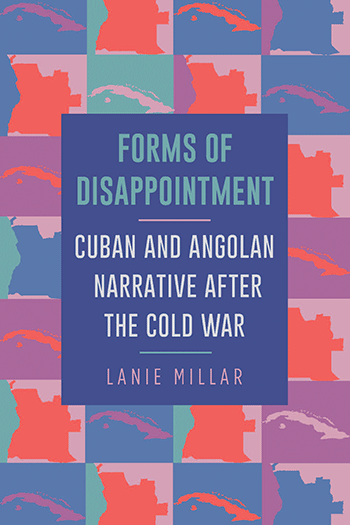
“In Forms of Disappointment, Lanie Millar traces the legacies of anti-imperial solidarity in Cuban and Angolan novels and films after 1989. Cubaʼs intervention in Angolaʼs post-independence civil war from 1976 to 1991 was its longest and most engaged internationalist project and left a profound
mark on the culture of both nations. After the fall of the Berlin Wall, Millar argues, Cuban and Angolan writers and filmmakers responded to this collective history and adapted to new postsocialist realities in analogous ways, developing what she characterizes as works of disappointment. Revamping and riffing on earlier texts and forms of revolutionary enthusiasm, works of disappointment lay bare the aesthetic and political fragmentation of the public sphere while continuing to register the promise of leftist political projects. Pushing past the binaries that tend to dominate histories of the Cold War and its aftermath, Millar gives priority to the perspectives of artists in the Global South, illuminating networks of anticolonial and racial solidarity and showing how their works not only reflect shared feelings of disappointment but also call for ethical gestures of empathy and reconciliation.”—from the publisher
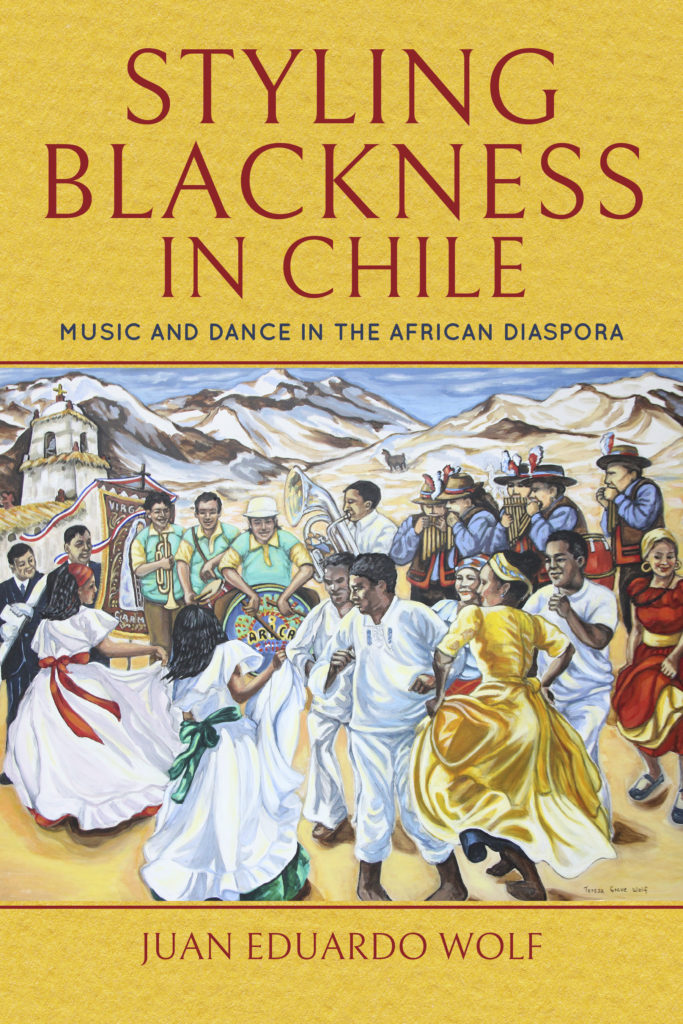
Styling Blackness in Chile: Music and Dance in the African Diaspora
by Juan Eduardo Wolf
Indiana University Press, April 2019
From the publisher: “Chile had long forgotten about the existence of the country’s Black population when, in 2003, the music and dance called the tumbe carnaval appeared on the streets of the city of Arica. Featuring turbaned dancers accompanied by a lively rhythm played on hide-head drums, the tumbe resonated with cosmopolitan images of what the African Diaspora looks like, and so helped bring attention to a community seeking legal recognition from the Chilean government which denied its existence.
“Tumbe carnaval, however, was not the only type of music and dance that Afro-Chileans have participated in and identified with over the years. In Styling Blackness in Chile, Juan Eduardo Wolf explores the multiple ways that Black individuals in Arica have performed music and dance to frame their Blackness in relationship to other groups of performers—a process he calls styling. Combining ethnography and semiotic analysis, Wolf illustrates how styling Blackness as Criollo, Moreno, and Indígena through genres like the baile de tierra, morenos de paso, and caporales simultaneously offered individuals alternative ways of identifying and contributed to the invisibility of Afro-descendants in Chilean society. While the styling of the tumbe as Afro-descendant helped make Chile’s Black community visible once again, Wolf also notes that its success raises issues of representation as more people begin to perform the genre in ways that resonate less with local cultural memory and Afro-Chilean activists’ goals. At a moment when Chile’s government continues to discuss whether to recognize the Afro-Chilean population and Chilean society struggles to come to terms with an increase in Latin American Afro-descendant immigrants, Wolf’s book raises awareness of Blackness in Chile and the variety of Black music-dance throughout the African Diaspora, while also providing tools that ethnomusicologists and other scholars of expressive culture can use to study the role of music-dance in other cultural contexts.”
Juan Eduardo Wolf is an associate professor of ethnomusicology in the UO School of Music & Dance, and the coordinator, UO World Music Series.
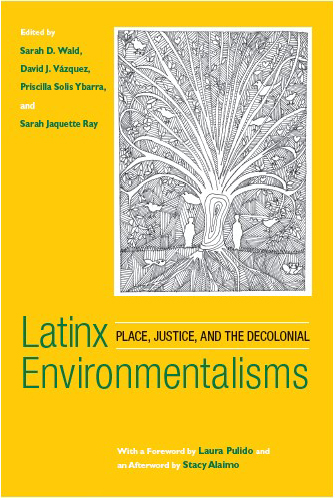
Latinx Environmentalisms: Place, Justice, and theDecolonial
edited by Sarah D. Wald, David J. Vazquez, Priscilla S. Ybarra, and Sarah J. Ray
Temple University Press, November 2019
From the publisher: The whiteness of mainstream environmentalism often fails to account for the richness and variety of Latinx environmental thought. Building on insights of environmental justice scholarship as well as critical race and ethnic studies, the editors and contributors to Latinx Environmentalisms map the ways Latinx cultural texts integrate environmental concerns with questions of social and political justice.
Sarah D. Wald is an associate professor in the Environmental Studies Program and the Department of English at the University of Oregon. David J. Vazquez is an associate professor and department head in the Department of English at the University of Oregon.
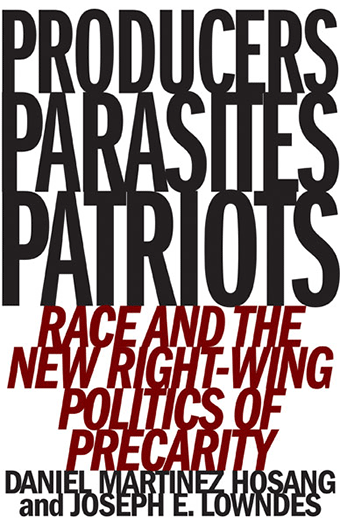
Producers, Parasites, Patriots: Race and the New Right-Wing Politics of Precarity
by Daniel Martinez HoSang and Joseph E. Lowndes
University of Minnesota Press, 2019
Synopsis: Daniel Martinez HoSang and Joseph E. Lowndes show that while racial subordination is an enduring feature of U.S. political history, it continually changes in response to shifting economic and political conditions, interests, and structures. From the militia movement to the Alt-Right to the mainstream Republican Party, Producers, Parasites, Patriots brings to light the changing role of race in right-wing politics.
Joseph E. Lowndes is an associate professor in the UO Department of Political Science. Daniel HoSang is an associate professor of American Studies and Ethnicity, Race, and Migration at Yale University. He previously taught at UO.
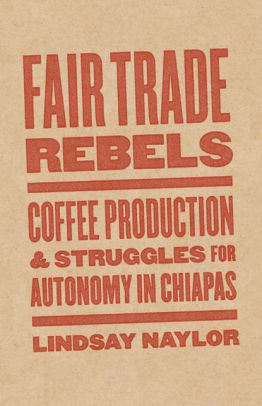
Fair Trade Rebels: Coffee Production and Struggles for Autonomy in Chiapas
by Lindsay Naylor
Diverse Economies and Livable Worlds Series.
University of Minnesota Press, 2019.
Synopsis: Is fair trade really fair? Who is it for, and who gets to decide? Fair Trade Rebels addresses such questions in a new way by shifting the focus from the abstract concept of fair trade–and whether it is “working”–to the perspectives of small farmers. It examines the everyday experiences of resistance and agricultural practice among the campesinos/as of Chiapas, Mexico, who struggle for dignified livelihoods in self-declared autonomous communities in the highlands, confronting inequalities locally in what is really a global corporate agricultural chain. Based on extensive fieldwork, Fair Trade Rebels draws on stories from Chiapas that have emerged from the farmers’ interaction with both the fair-trade-certified marketplace and state violence. Here Lindsay Naylor discusses the racialized and historical backdrop of coffee production and rebel autonomy in the highlands, underscores the divergence of movements for fairer trade and the so-called alternative certified market, traces the network of such movements from the highlands and into the United States, and evaluates existing food sovereignty and diverse economic exchanges. Putting decolonial thinking in conversation with diverse economies theory, Fair Trade Rebels evaluates fair trade not by the measure of its success or failure but through a unique, place-based approach that expands our understanding of the relationship between fair trade, autonomy, and economic development.
Lindsay Naylor is an assistant professor, Dept. of Geography & Spatial Sciences, College of Earth, Ocean, & Environment at the University of Delaware. As a graduate student at the University of Oregon, she was the recipient of a 2010 CLLAS Graduate Student Research Grant for “Harnessing Multiple Movements: The Intersection of Fair Trade and the Zapatista Movement in Chiapas, Mexico.”
La Serenata
Directed by Adelina Anthony
Written by Ernesto Javier Martínez
2019 | Short Film / Aderisa Productions
Synopsis: A Mexican-American boy learns from his parents about serenatas, and why demonstrating romantic affection proudly, publicly, and through song is such a treasured Mexican tradition. One day, the boy asks his parents if there is a song for a boy who loves a boy. The parents, surprised by the question and unsure of how to answer, must decide how to honor their son and how to reimagine a beloved tradition.
Film Festivals: Official Selection, Outfest Fusion LGBTQ People of Color Film Festival, 2019; Official Selection, San Diego Latino Film Festival, 2019
Ernesto Martínez is an associate professor in the UO Department of Ethnic Studies.

